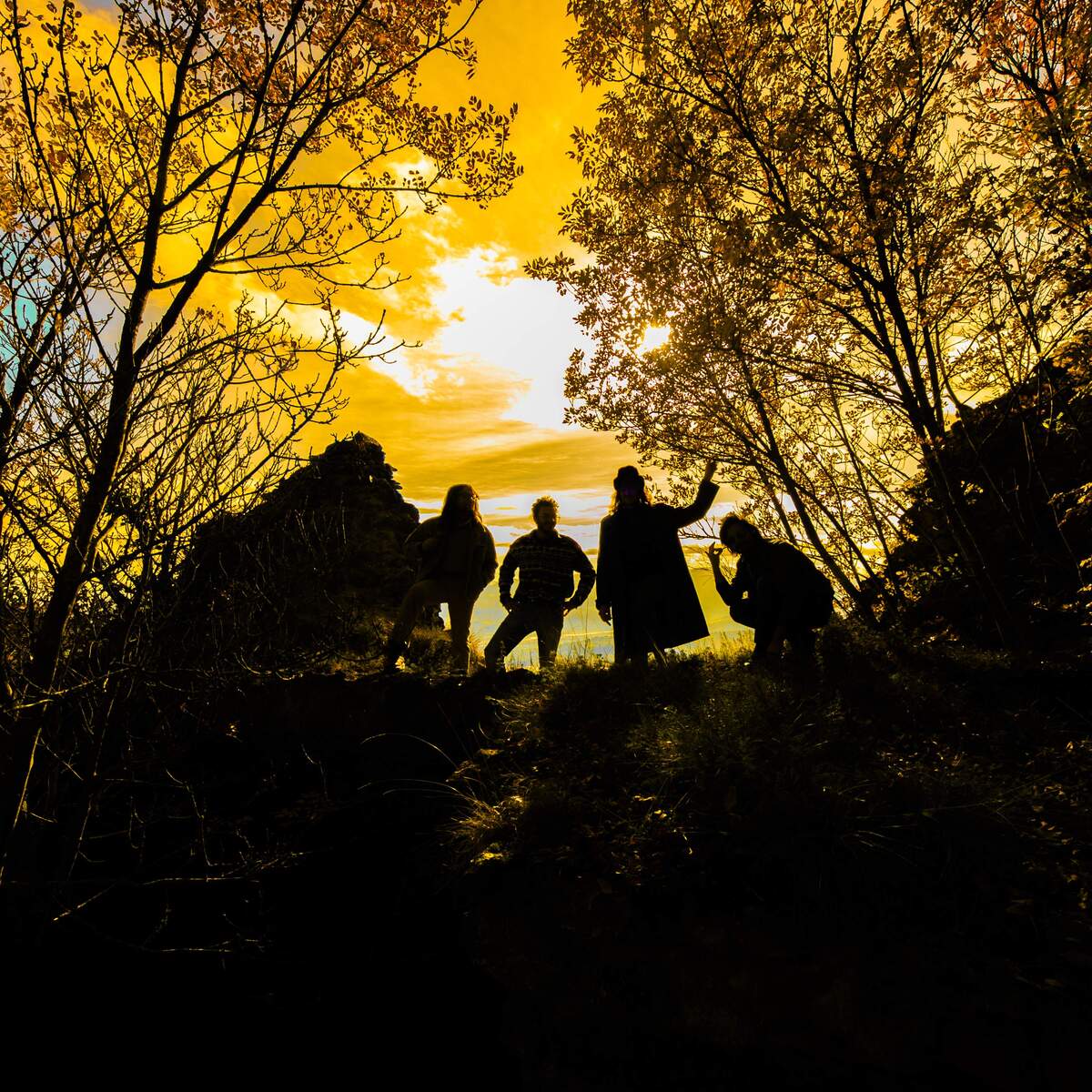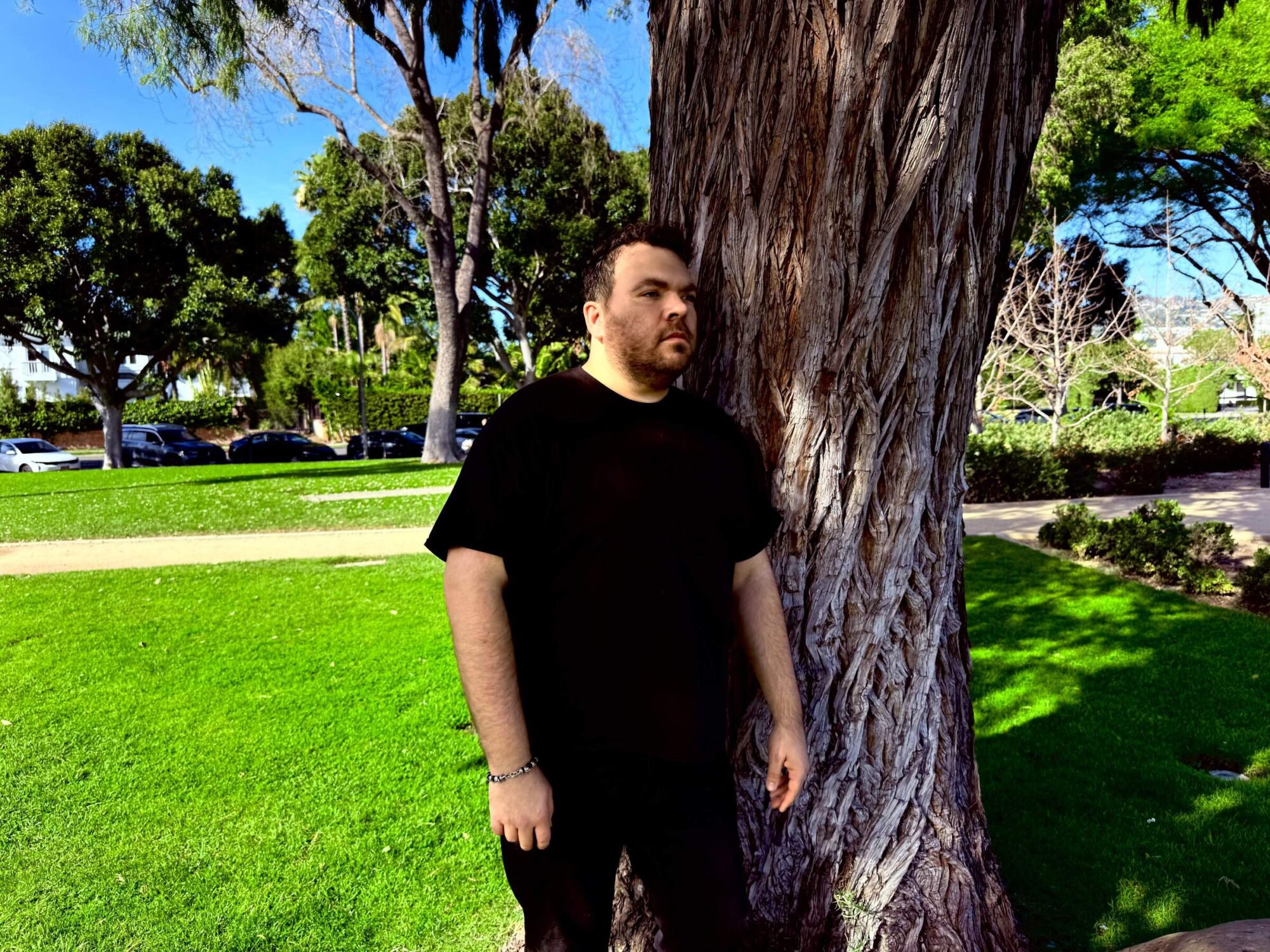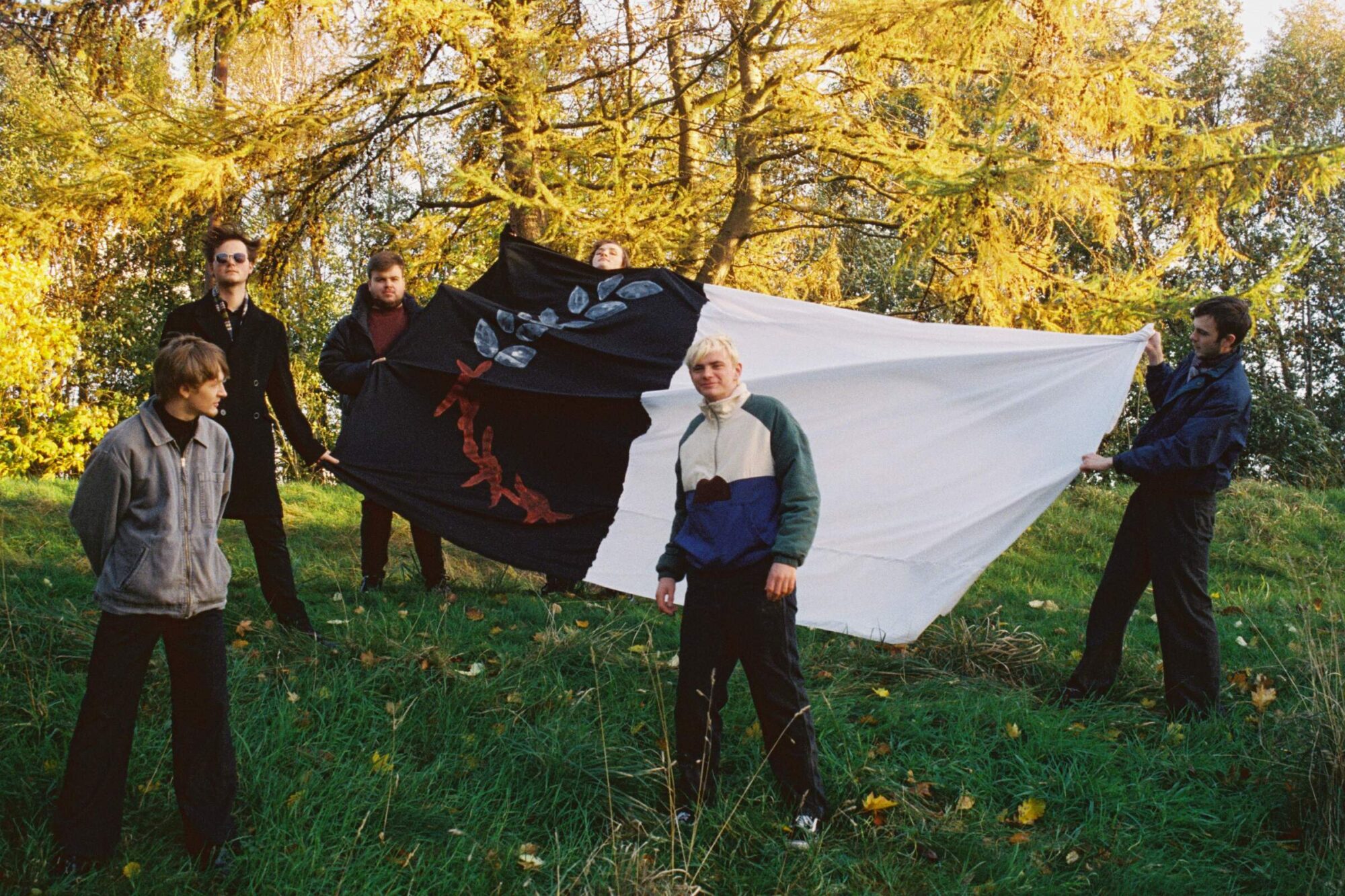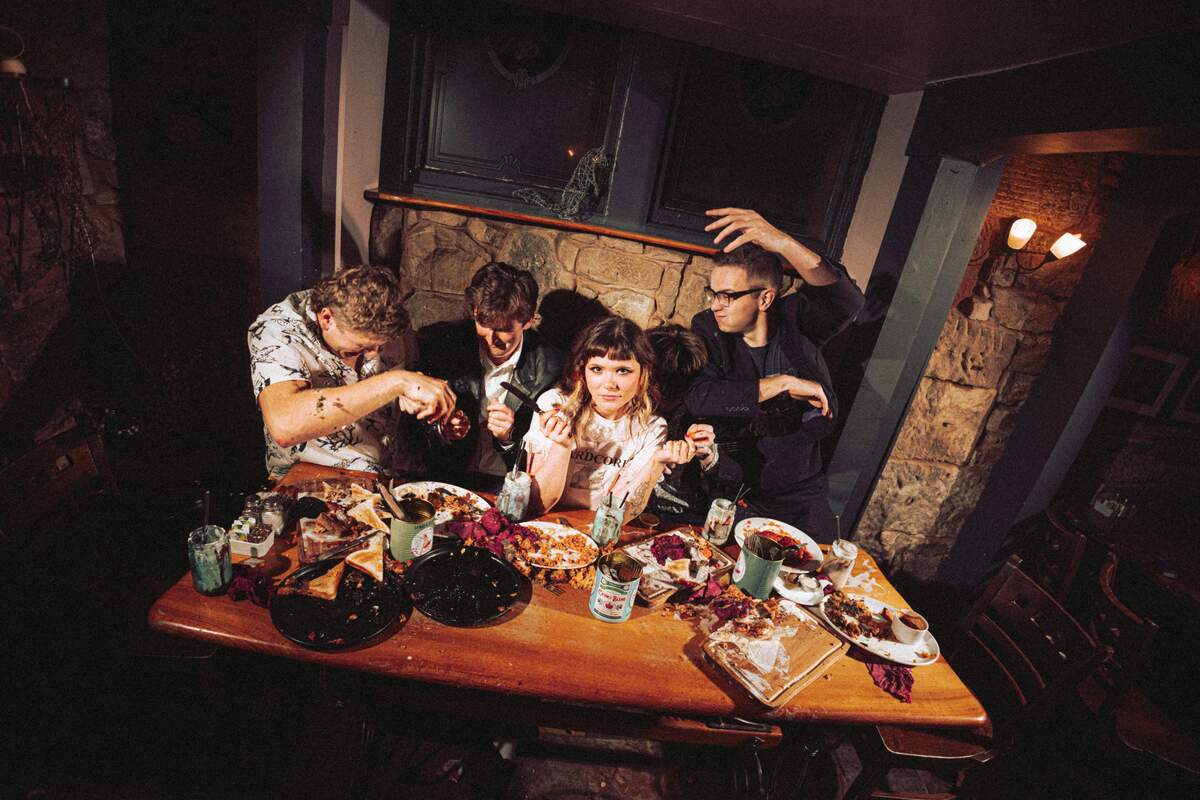An Interview with The Lancasters: Inside a Medieval Dream of ‘The Word of the Mistral’
Somewhere between a medieval story and a psychedelic seance, ‘The Word of the Mistral’ is a record that throws you into a world where the past never really ended.
Formed in 2019, the band stomped straight into Italy’s underground scene with a deep love for the music of the late sixties and early seventies. Their new record, ‘The Word of the Mistral,’ is an album with a strong historical influence. Frontman Dave Chiari tells a long story about wandering knights and mystics, presenting it as an acid fueled road trip through the Apennines. Hildegarde von Bingen herself seems to drift through the story. She acts like a ghost who whispers riddles over the music’s loud feedback.
At the heart of the album is a mythical tale created by frontman Dave Chiari. Four wandering knights search for a sacred golden ark across the Italian Apennines. Along the way, they meet powerful characters. These include The One Who Sees in the Dark, the King and Queen of Umbrìa, and even Lucifer. The most important figure they encounter is Hildegarde von Bingen. She was a 12th-century visionary, mystic, and rebel. Hildegarde created her own language and composed music at a time when women were not allowed to do so. Branded a threat in her own era, she emerges in this story as a symbol of higher power.
The record was tracked on ancient machines in just one whirlwind week and will be released on October 3, 2025, via Retro Vox Records and Life On Saturn. You can pre-order it now.
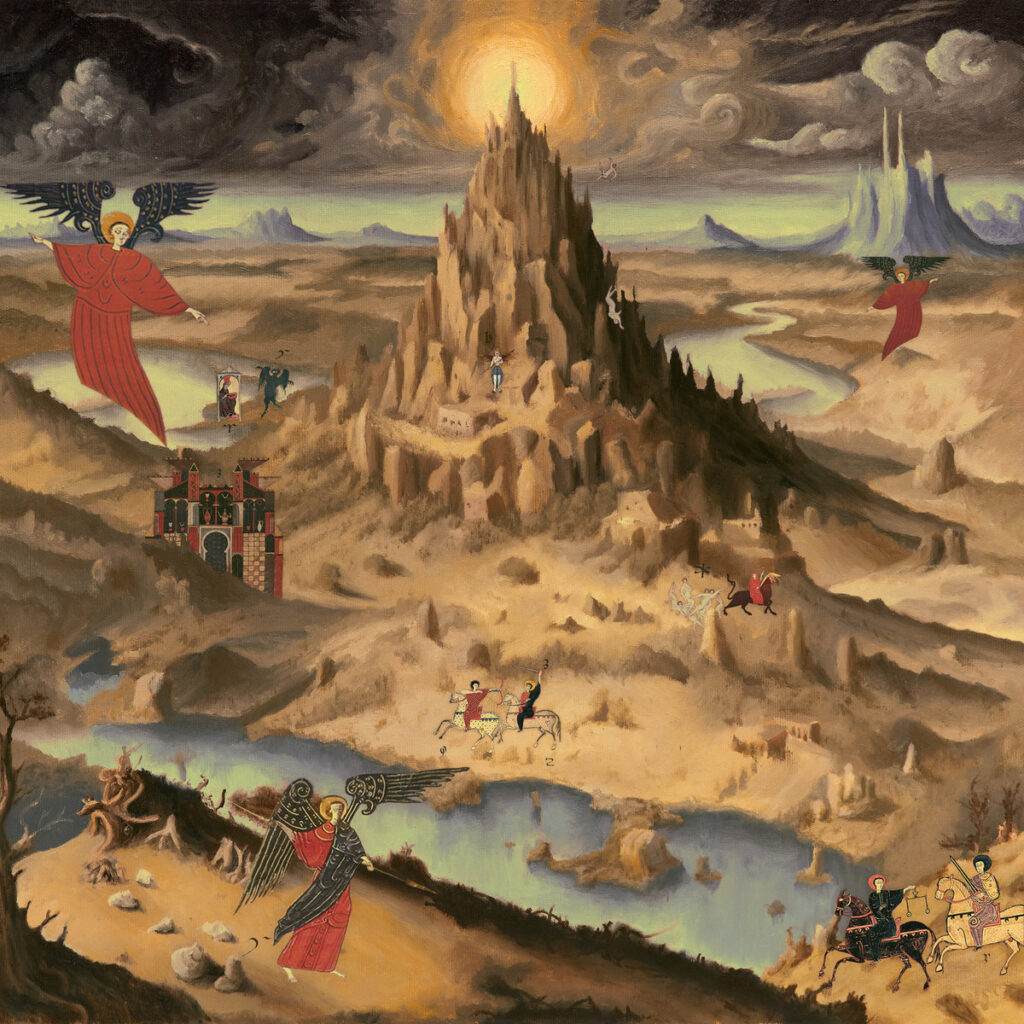
“Improvisation is vital”
You’ve been compared to Led Zeppelin, Rory Gallagher, and Sabbath, but also cite The Stooges and Frank Zappa. How do you balance paying homage with carving your own path?
We’ve always worn our influences proudly – drawing from Led Zeppelin’s epic riffs and mystical edge, Rory Gallagher’s raw blues fire, Black Sabbath’s doom-laden heaviness, The Stooges’ primal energy, and Frank Zappa’s wild experimentation. But paying homage isn’t about mimicking; it’s about igniting our own creative spark. We carve our unique path by channelling those sounds and aesthetics through an Italian filter: the rugged Apennines, the maestrale wind’s haunting whisper, and our heavy psych vibe that blends garage-dirty grit with acoustic calm. Tracks like ‘Hildegarde’ tip a hat to Zappa’s surreal textures and Jeff Beck’s sharp ’70s funk, yet we reshape them into something trippy and desert-stung, born from our live jams and frontman Dave’s evocative tales. It’s an evolution – taking the raw spirit of ’69–’71 England and letting it roar across our visions, this time inspired by the early Dark Ages.
What’s the role of improvisation in your music, both live and in the studio?
Improvisation is vital. It’s the lifeblood of everything we do. Live, it allows us to stretch our songs into uncharted territory, guided by the mood of the moment – much like a spontaneous journey. In the studio, it’s the cornerstone of our creative process. When an idea strikes during a recording session, we avoid over-polishing it beforehand. We preserve that final breath before its birth, capturing a raw, direct sound reminiscent of early ’70s England – think Small Faces, Jeff Beck, Humble Pie, Led Zeppelin, or Black Sabbath. This keeps it authentic and rough, exactly as we love it!
Looking back to your 2019 beginnings, how do you think The Lancasters’ sound has evolved up to this record?
Our journey began in 2019 with a sound rooted in the fuzzed-out ’90s vibe of our debut, which laid the groundwork. With ‘Standard Family Size,’ we hit a turning point, fully embracing our psychedelic soul. By the time we reached ‘The Word of the Mistral,’ our sound had evolved into something richer – layered with prog influences, acoustic boldness, and a desert-dirty edge, all while staying true to our heavy psych roots. It’s a natural progression, shaped by years of touring and refining our craft.
You recorded the album in just one week on vintage gear — what impact did that have on the final sound? How important was it for you to capture that analogue warmth as opposed to using modern recording shortcuts?
We’ve always held analogue sound as our truest expression, a commitment carried across all three albums. Opting for magnetic tape was a deliberate choice, boosting the lowest frequencies with a warm push and adding creamy highs thanks to its fine magnetic oxide surface. It’s a technical decision that also suits the focused mood of our sessions – no getting lost in endless LCD tweaking. We’re even upgrading the tape width to enhance the dynamics further. This isn’t a one-size-fits-all approach, but it’s perfect for us, delivering a sound that feels alive and human, far removed from the sterility of modern shortcuts.
‘The Word of the Mistral’ weaves a mythical tale with wandering knights, Lucifer, and Hildegarde von Bingen. How did this story come together, and what drew you to Hildegarde as a central figure?
The story springs from an aesthetic spark, born from the eerie sensation of walking through Val Ceno or Val d’Arda, where the light cools despite the brownish slopes and forests. It took shape while pondering the religious and political chaos of 7th-century Europe. Imagining the end of the world heralded by predestined knights – once secular mounted guards – felt right, especially given the harsh journeys of the Lombard era along ancient Celtic paths. The quest’s power drove the spirit beyond physical limits, embracing a destiny-driven ideal.
Hildegard von Bingen became our narrative guide, an omniscient figure from the future offering clues to the four knights and revealing the soul in her final, maestrale-scattered words. Her scientific, literary, and musical genius as an anachronistic woman makes her a fascinating centrepiece, especially for those new to her lingua ignota.
Do you see yourselves more as storytellers or as sonic explorers when creating a concept album like this?
We lean towards sonic explorers, always starting with a musical landscape before letting the words flow from a concept agreed upon by the band. Dave’s fascination with the early Dark Ages steered us this time, inspiring a fictional legend rooted in that era. The narrative then weaves itself into the sound, creating a cohesive whole.
The Apennines seem to play a key role in the narrative – what’s their significance for you personally and musically?
Back then, people sensed natural phenomena and places through a spiritual sensitivity that shaped faith, not just a hunger for knowledge. These mountains are tranquil, with gentle lines that sometimes turn into arid, almost lunar vistas. They hold the stark simplicity the protagonists might have seen alongside figures like King Desiderius, Paul the Deacon, or Saint Columbanus.
For us, it’s crucial to challenge myths of wealth and opulence from that time, as well as the notion of cultural collapse after the fall of the Roman Empire. Those lands were home to people of remarkable memory and intellect, enduring harsh conditions with total devotion to their quests.
Psychedelia and myth often deal with transcendence – is that what you’re chasing through your music?
Absolutely. As The Lancasters, we’re driven to blend our notes into narratives that span centuries – crafting fresh, fantastical, and mystical legends. While we cherish our ’70s prog influences, we prioritise creating something distinct and profound. Myth, atmospheric shifts, and the storyline share equal credit – about 50/50 – with the composition in shaping our music, all aimed at that transcendent experience.
What are your hopes for how audiences will experience ‘The Word of the Mistral’ — as a concept album, as a live performance, or as something else?
We’re thrilled to perform the album in full where possible, starting with shows in October 2025. Even listening to the LP offers a complete journey, thanks to the concept detailed in the gatefold. The vinyl packaging is a labour of love – rich with detail, crafted like a precious relic brimming with mystical energy and atmosphere, meant to be treasured.
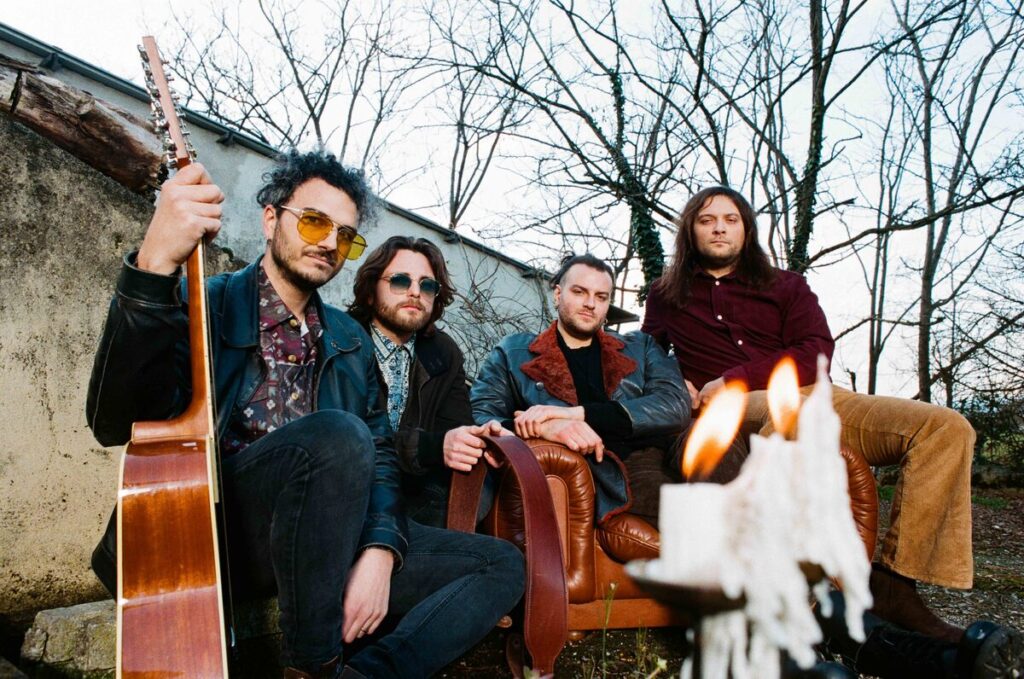
If you could invite one of your influences (say, Jimmy Page, Rory Gallagher, or Iggy Pop) to hear the album front to back, what do you think they’d say?
If Jimmy Page sat down for a full listen to ‘The Word of the Mistral,’ he might well nod along to our punchy riffs. It’d be brilliant to hear his take on the shift from polytheism to monotheism in the Western world during those times – a genius who shaped rock’s most iconic moments with compositions and tales that earned every bit of his fame. We’d hope he’d sense and enjoy our passion for delivering an eternal story to the world and beyond.
Headline photo credit: Iacopo Barattieri
The Lancasters Facebook / Instagram / YouTube / Bandcamp
Retro Vox Records Facebook / Instagram / X / Bandcamp
Life On Saturn Facebook / Instagram

